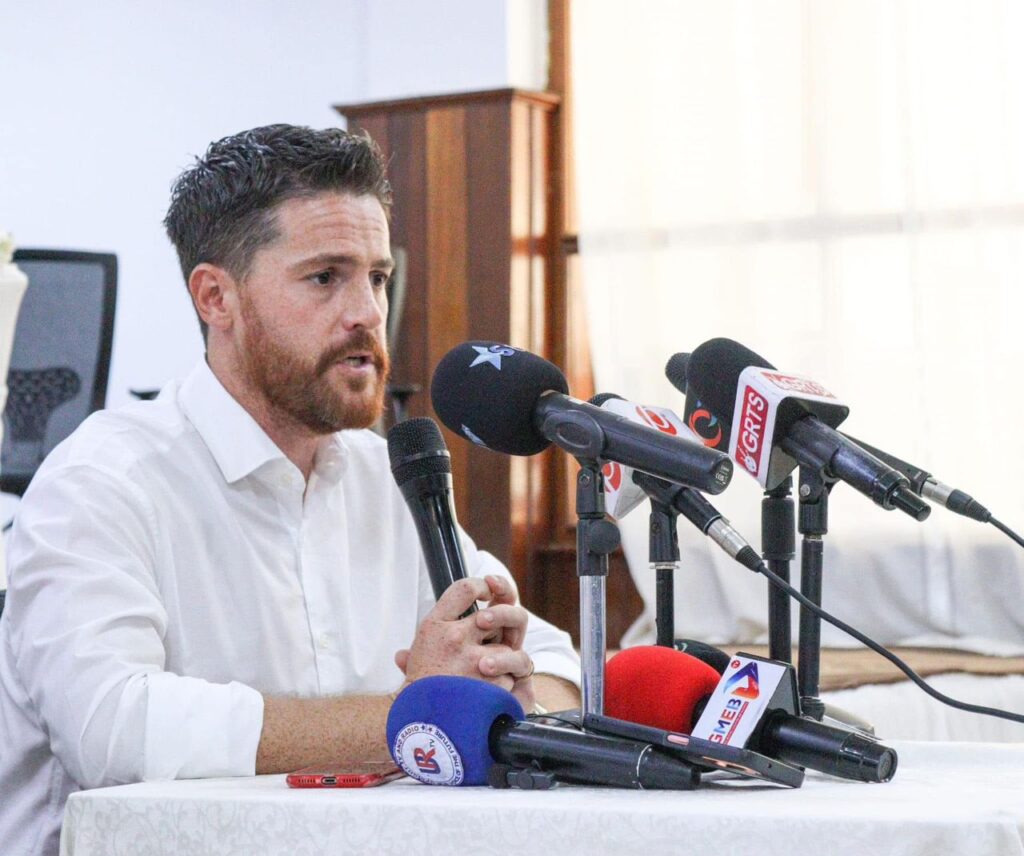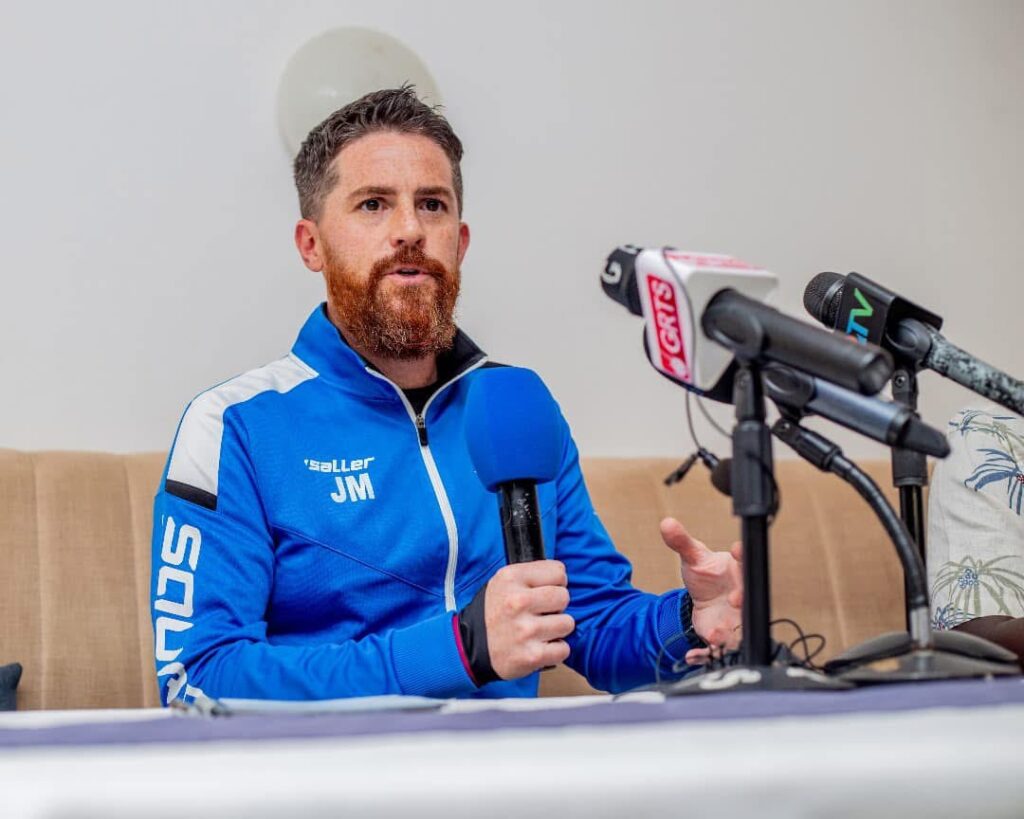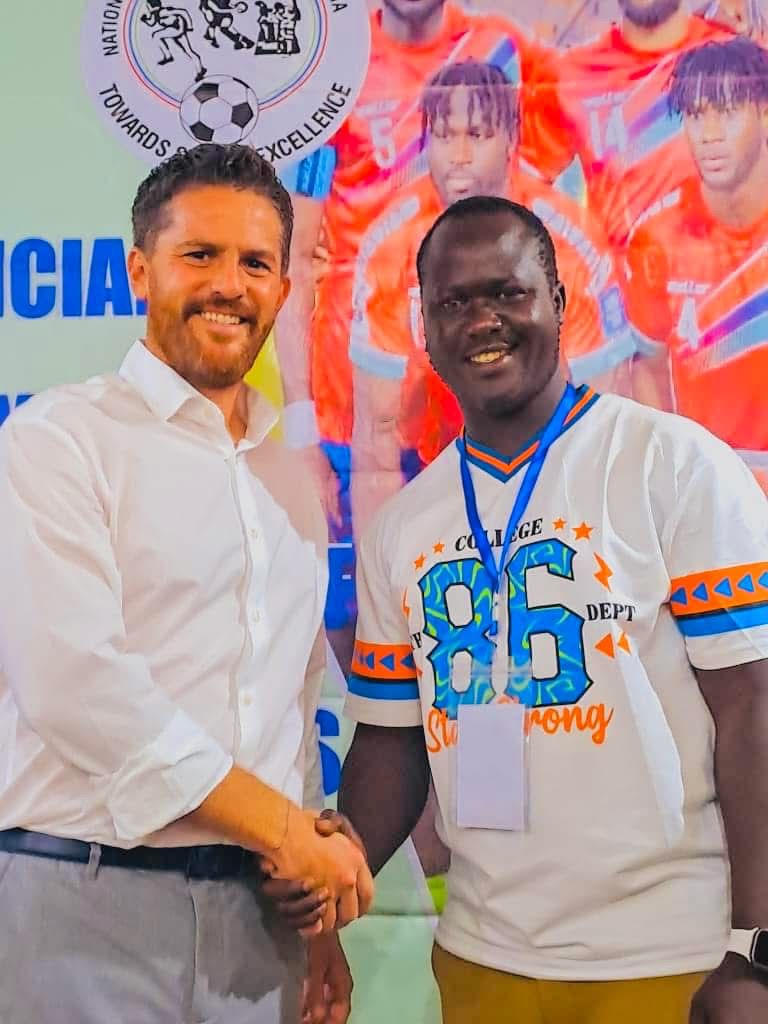
Today marks exactly one year since Northern Irishman Johnathan McKinstry signed a two-year contract as head coach of The Gambia national football team, the Scorpions.
Hailed as a progressive appointment, McKinstry’s first 12 months have been anything but quiet, marked by tactical shifts, emerging talents, and a mix of inspiring wins and frustrating setbacks.
A new philosophy takes root
From the start, McKinstry promised to transform the Scorpions’ style of play, and he has delivered. Moving away from the conservative, defense-first approach of former coach Tom Saintfiet, McKinstry implemented an attacking brand of football aimed at maximising the nation’s emerging talent pool.
This shift was evident not just in tactics but also in team morale, as players visibly responded to the new direction.
A platform for young talent
A notable highlight of McKinstry’s tenure has been his commitment to youth development and merit-based selection. Over the past year, Gambia’s scouting network expanded significantly, tracking over 200 players worldwide.
This led to the inclusion of fresh faces in the national setup, such as goalkeeper Musa Dibaga, midfield sensations Abubakr Barry and Mahmudu Bajo, and forwards Yankuba Minteh and Abdoulie Ceesay are young talents who are already making their mark on the international stage.

High points on the pitch
Among the brightest moments was Gambia’s emphatic 5–1 victory over Seychelles in June 2024, marking the Scorpions’ biggest win in 24 years. Even more impressive was a 1–0 away triumph against Tunisia in the 2025 Africa Cup of Nations qualifiers, showcasing the team’s ability to perform well above expectations under McKinstry’s guidance.
Challenges still remain
Despite these promising signs, McKinstry’s first year has not been without turbulence. Gambia’s slow start to AFCON qualifying, where they secured just two points in their first three matches, seriously dented their hopes of reaching the 2025 tournament.
Additionally, defensive vulnerabilities and lapses in concentration during key moments led to missed opportunities, particularly in the 2026 World Cup qualifiers, where Gambia currently sits fifth in Group F after four matches.

Off-the-pitch obstacles
Adding to the challenges is the absence of a CAF-approved stadium within The Gambia, which has forced the national team to host “home” fixtures in neutral venues like Morocco and Ivory Coast.
This ongoing issue has deprived the Scorpions of true home-field advantage and the support of their passionate local fans.
Looking ahead
With one year remaining on his contract, McKinstry faces a critical period. His task is twofold: to build on the attacking momentum while tightening the defense, and to navigate the team through the remainder of their World Cup qualifying campaign.
Perhaps more importantly, he must do so amid continued infrastructural challenges that extend far beyond the training ground.

Still, there is cautious optimism. In McKinstry, Gambia has a coach who is unafraid to make bold changes. Whether those changes will lead to historic qualification or more growing pains remains to be seen, but for the Scorpions, the journey is clearly just beginning.
By Ebrima KB Sonko










Recent Comments